All products featured are independently chosen by us. However, SoundGuys may receive a commission on orders placed through its retail links. See our ethics statement.
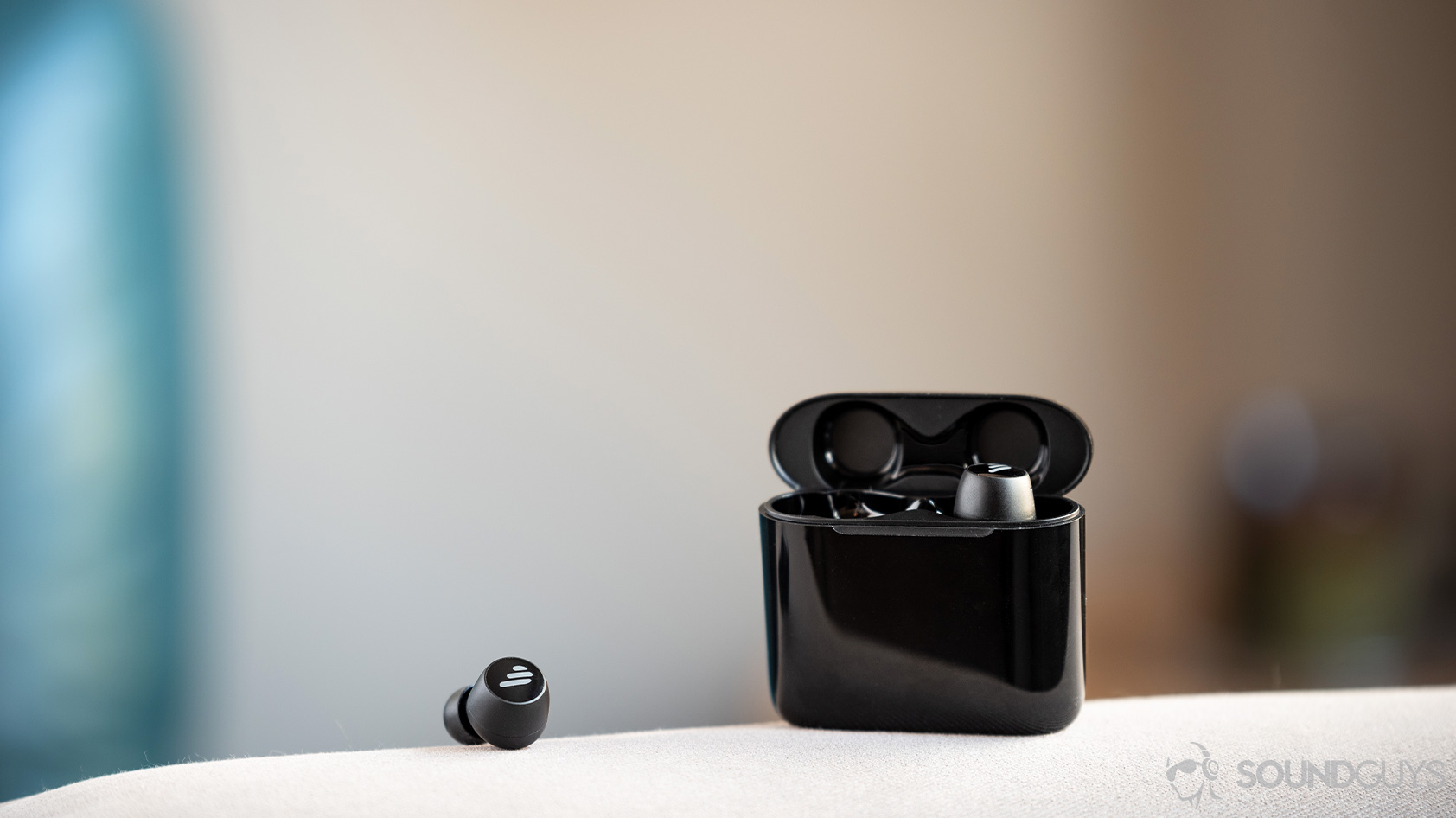
Edifier TWS6 review
Published onMarch 16, 2021
Edifier TWS6
Edifier may not have the same sway over pop-culture as Apple and Google, but that’s because forgoes headline-catching features for raw audio quality. The Edifier TWS6 is a pocketable true wireless headset with great battery life, fine microphone quality, and a sound signature sure to please the masses.
Editor’s note: this Edifier TWS6 review was updated on March 16, 2021, to include a contents menu and add information to the sound quality section.
Who should get the Edifier TWS6?

- General consumers who don’t want to fiddle with gimmicky features should get the Edifier TWS6. Sound quality and functionality take precedence over all else.
- Anyone who spends their days on the phone should consider these earphones.
- Commuters will appreciate the excellent passive isolation performance once a proper fit is made. Low frequency sounds are rendered nearly ½ as loud as they sound without the earbuds in.
How are the Edifier TWS6 built?
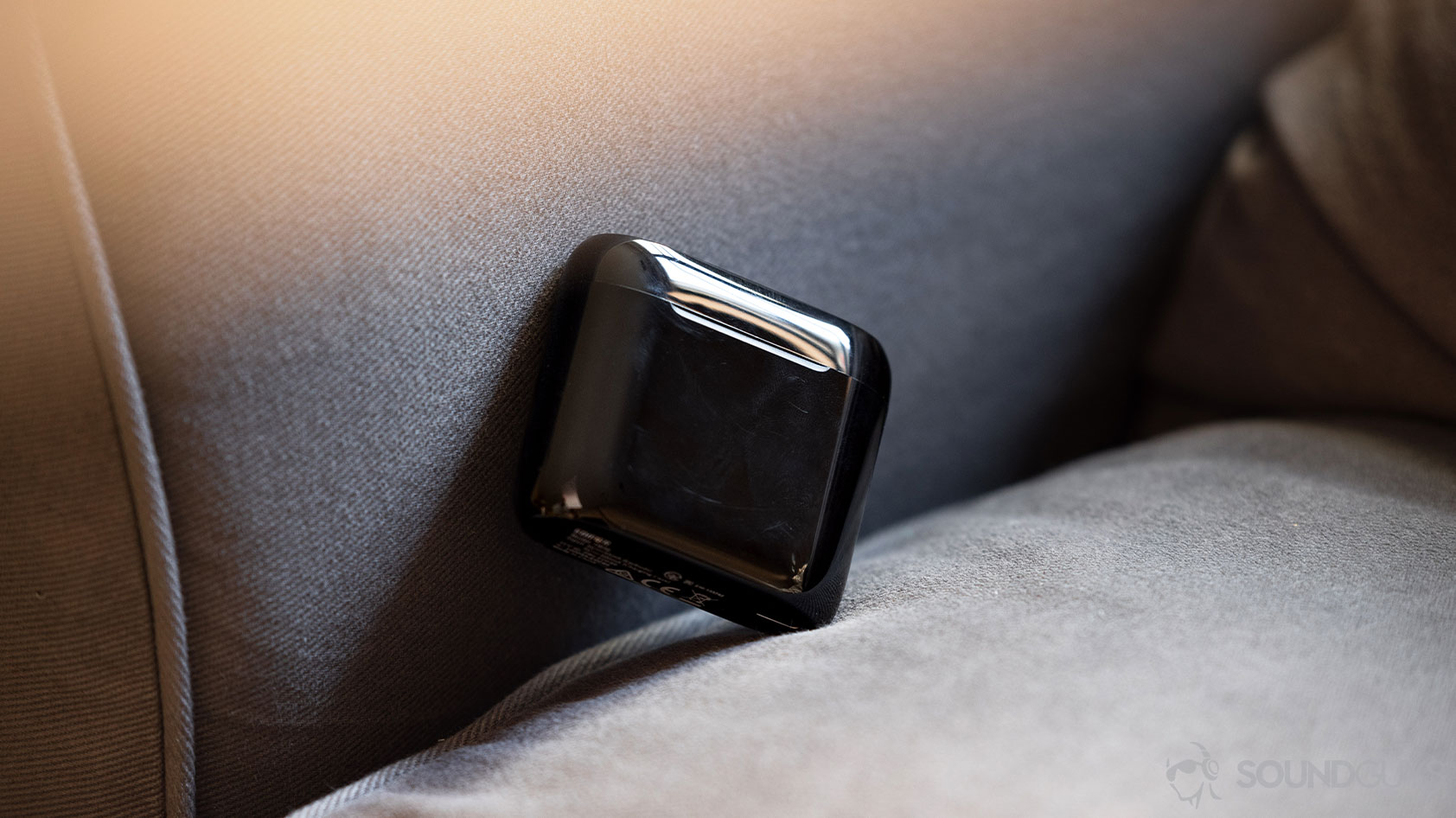
The Edifier TWS6 earphones look nearly indistinguishable from the much cheaper Edifier TWS1. The headset uses an all-plastic housing for the earbuds and charging case, which attracts fingerprints and scuffs. This is about as Spartan as a true wireless headset gets: the cylindrical buds are easy to remove from the case inserts and are rather unremarkable.
Start here: Ultimate headphone buying guide
I’ll hand it to Edifier for one thing, though: it knows how to make comfortable earbuds. The lightweight, compact build fits snug into the ear canal and never shook loose, despite the nearly useless wing tips. I wore these earphones for six hours straight, and had yet to experience any discomfort.
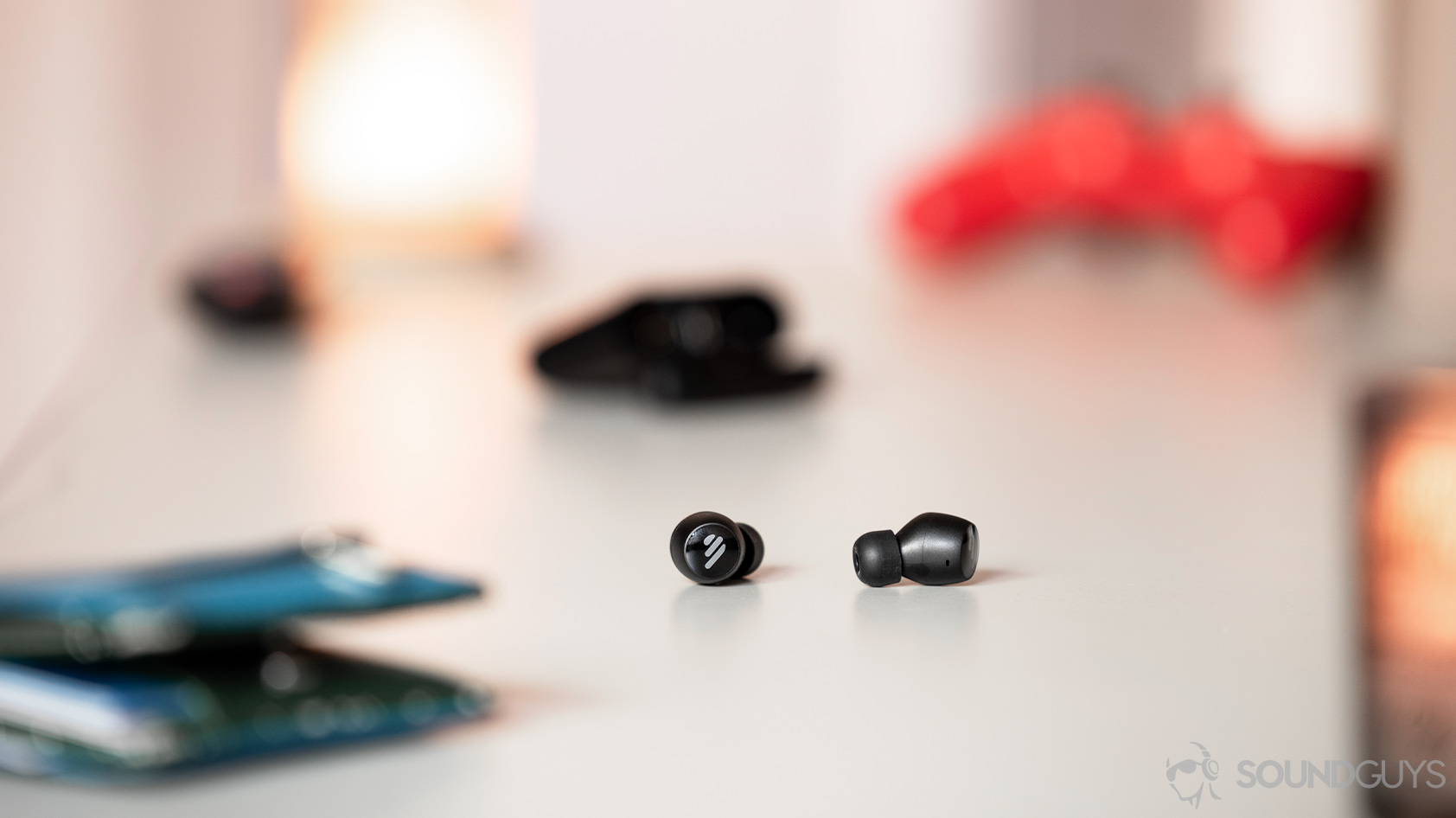
Touch controls are very limited. You may access your preferred virtual assistant by double-tapping the left earbud, and pause or resume playback by double-tapping the right earbud. That’s it. Oh, you wanted more features like the ability to skip tracks? No, for that you’ll need to look elsewhere perhaps toward Jabra. To the Edifier’s credit, the controls, while limited, work well. I never had a command misfire on me, which is more than I can say for my beloved Galaxy Buds.
Don’t both with the Edifier Connect app
Edifier’s software support is limited to a select few of its wireless models, and the only true wireless unit found on the Edifier Connect app is the most premium of the lot: the Edifier TWS NB, its flagship noise canceling earphones. Hopefully the company adds support for the TWS6, because I’d love the opportunity to remap controls, and swap virtual assistant access for the ability to skip tracks.
Do the Edifier TWS6 stay connected?
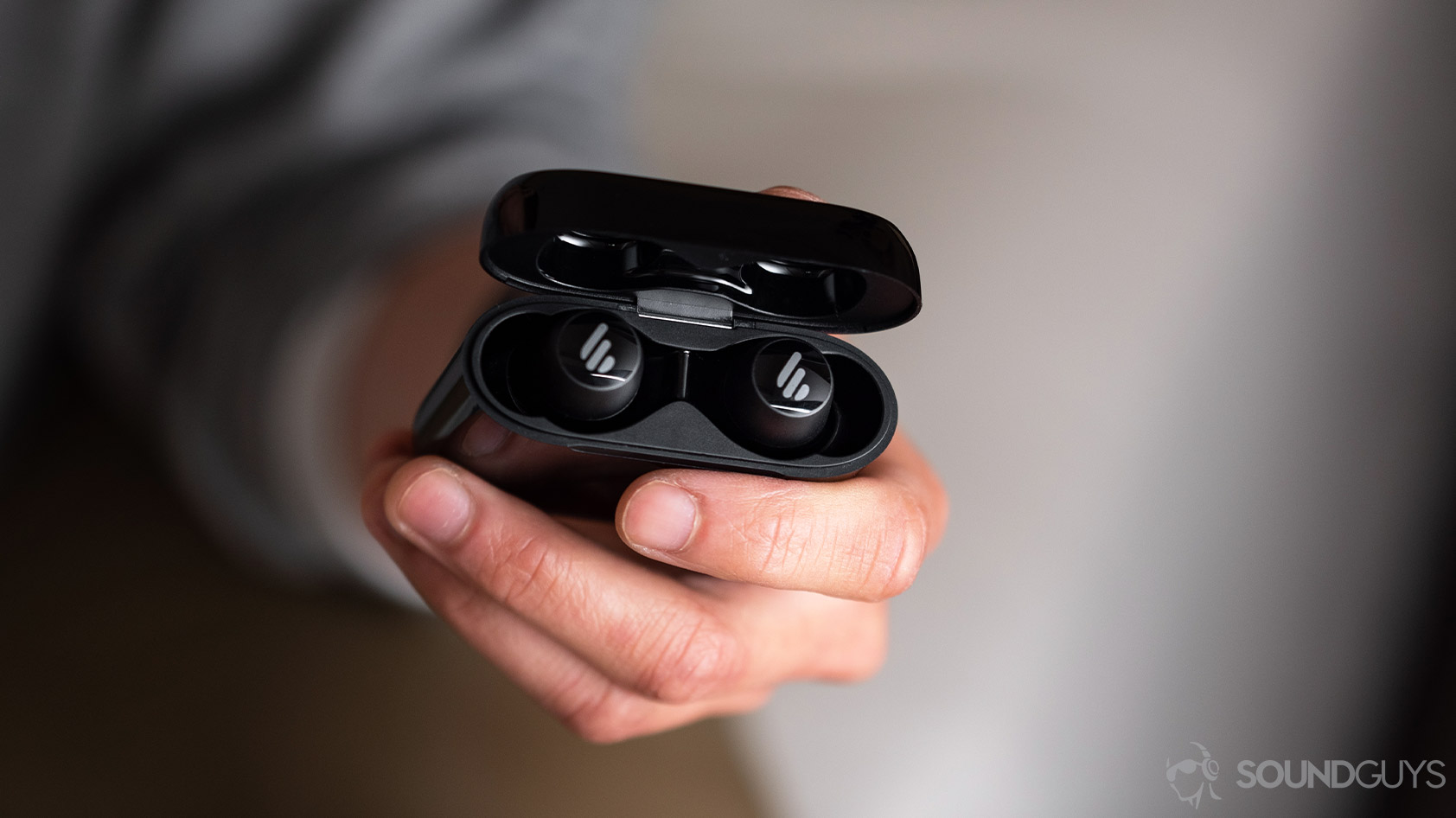
These earbuds use Bluetooth 5.0 and afford the standard 10-meter wireless range. So long as I was within this radius, connection stability was consistent—unless outside. Even if my phone was in my pocket while walking around, connection skips presented themselves a few times an hour. On the up side, the earbuds support the two most popular high-quality Bluetooth codecs: aptX and AAC, which enables optimal wireless audio quality no matter your mobile device. I was bummed to realize these earbuds don’t support Bluetooth multipoint, so if you want to switch from your phone to your laptop, you’ll have to do so manually.
How long does the battery last?
The Edifier TWS6 lasted 7 hours, 36 minutes on a single charge; while this falls below the listed eight-hour battery life, it exceeds the average playtime for true wireless earbuds. The USB-C charging case supplies listeners with an additional three full charge cycles. Quick charging is not supported, but wireless charging is with a Qi-certified charging mat.
Do the Edifier TWS6 sound good?
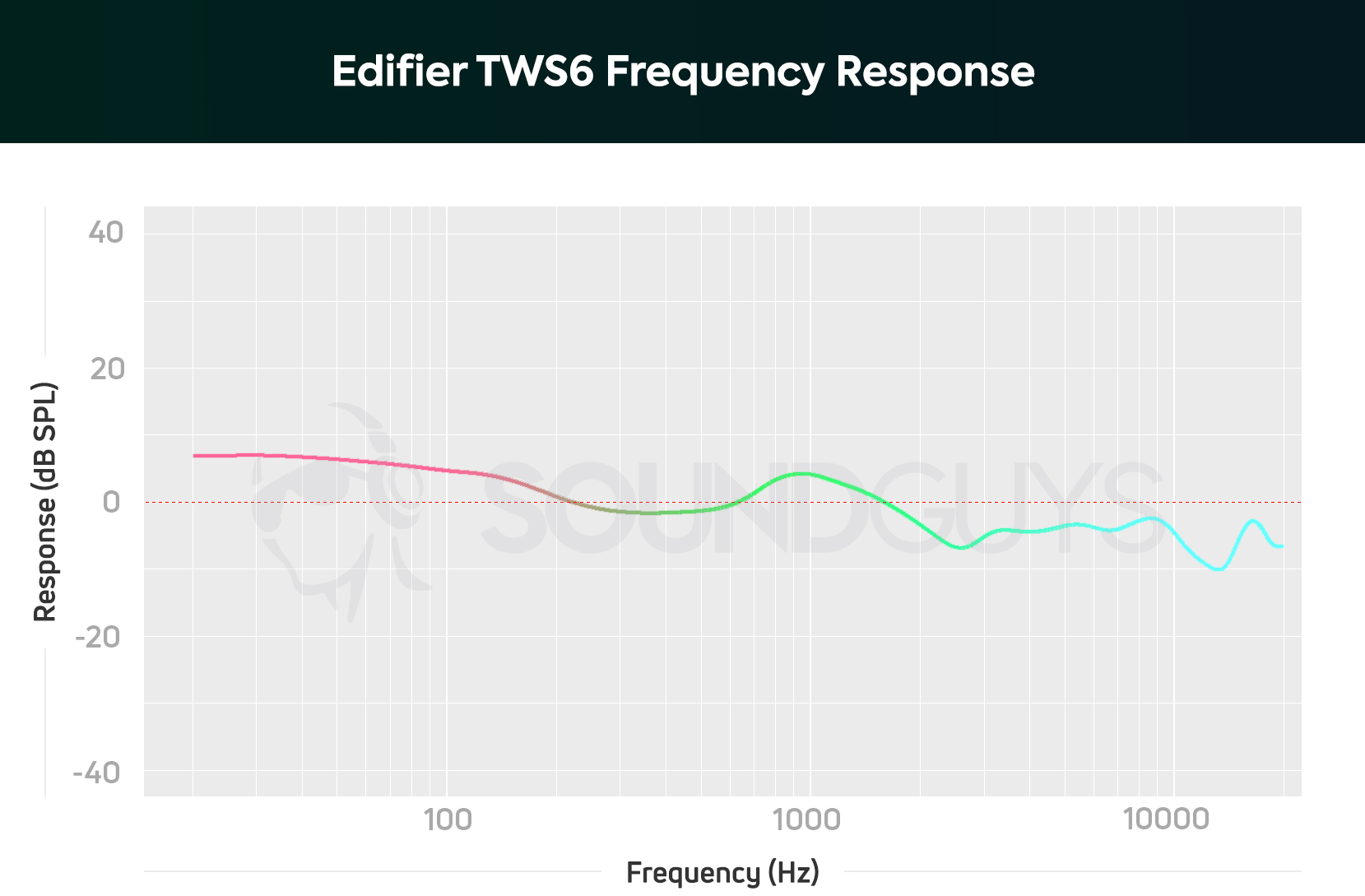
This Edifier headset uses Knowles balanced armature drivers that are engineered to appeal to the most listeners. This means bass notes are amplified, and while it’s not accurate, sound quality is enjoyable. A modest bump in midrange notes, makes it easy to discern vocal harmonies and string resonances above any low-frequency din. This midrange amplification reduces the perception of auditory masking, so you’re less likely to feel that detail is “missing” from your music. Again, while it’s an engaging sound, listeners yearning for a platonic sound won’t find it with the Edifier TWS6.
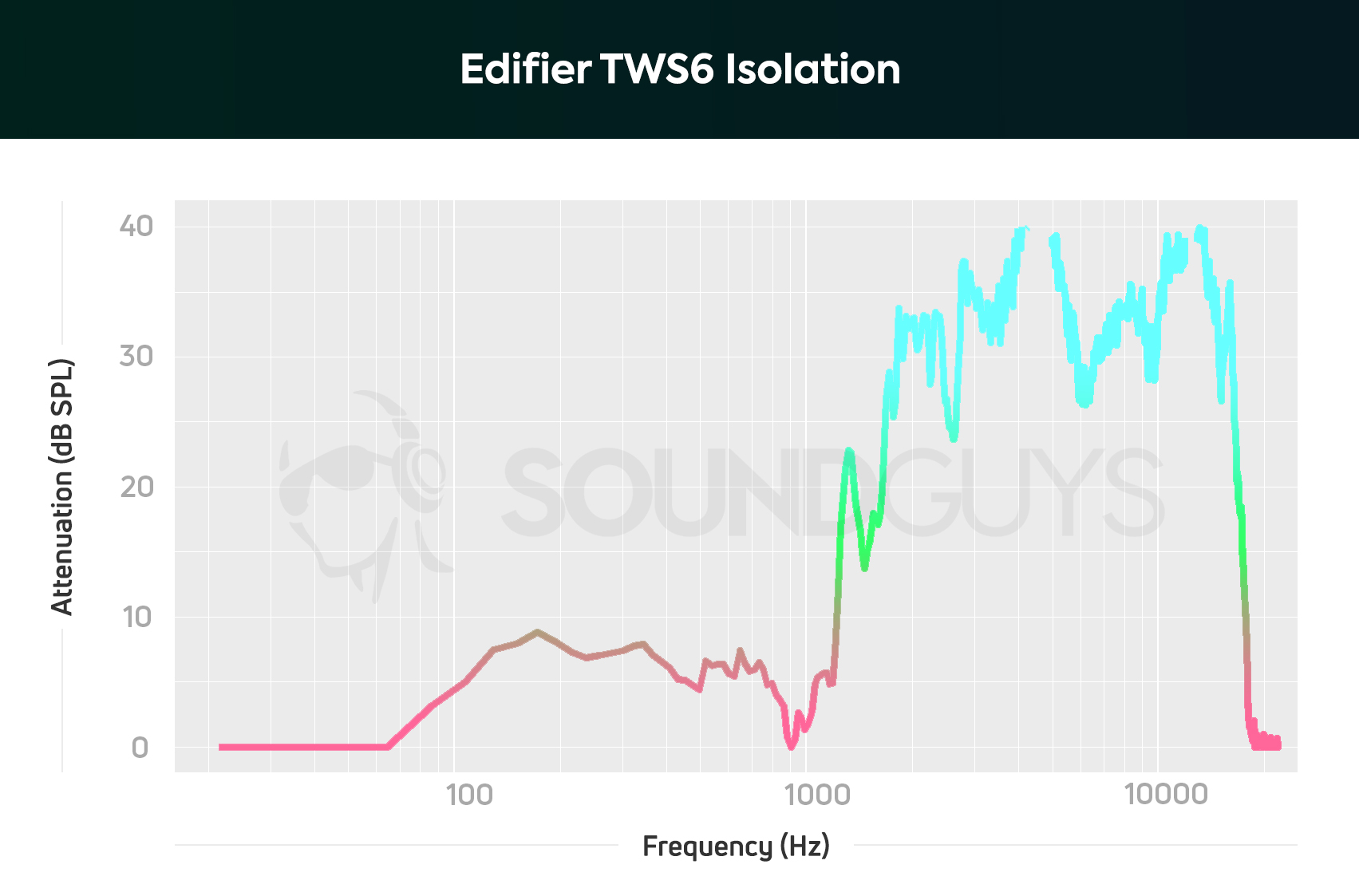
Passive isolation is very good for a standard set of in-ear headphones, due to the array of memory foam and silicone ear tips the company provides. Low frequency noises, like washing machines, sound half as loud as they would without the earbuds in, which is great news for anyone working from home. Ambient noise is also reduced when a proper fit is achieved, so you’ll hardly hear any of the outside world when music is playing.
Related: How to read charts
Lows, mids, and highs
Janelle Monáe’s song Dance or Die (feat. Saul Williams) sounds great with the Edifier TWS6: the beat opens with William’s low vocalizations underscored by a mellow drum beat, which is relayed distinctly through the left and right channels. His voice comes through very clearly, and the Knowles balanced armature drivers adroitly reproduce the subsequent resonances, differentiating them from Monáe’s backing vocals. At 0:17, William’s is sidelined as Monáe begin rapping and background instrumentals become more complex. During this first verse, I never felt it difficult to perceive Monáe’s voice.
If there were ever an instance when auditory masking made itself known, it’s when the chorus kicks in at 1:37. It’s easy to hear the main lyrics of the chorus, but Monae’s underlaid vocals “sun… drums…” after the end of each line in the chorus are very difficult to hear. Yes, they’re quieted intentionally because of how the song is engineered, but it’s rendered much more audible with my Philips Fidelio X2. This is an exaggerated example, and I’m happy to know that my open-back, wired studio headphones outperform these true wireless earbuds, but it’s something to be aware of if your music library is filled with backing vocals and harmonies.
The mic is good for phone calls
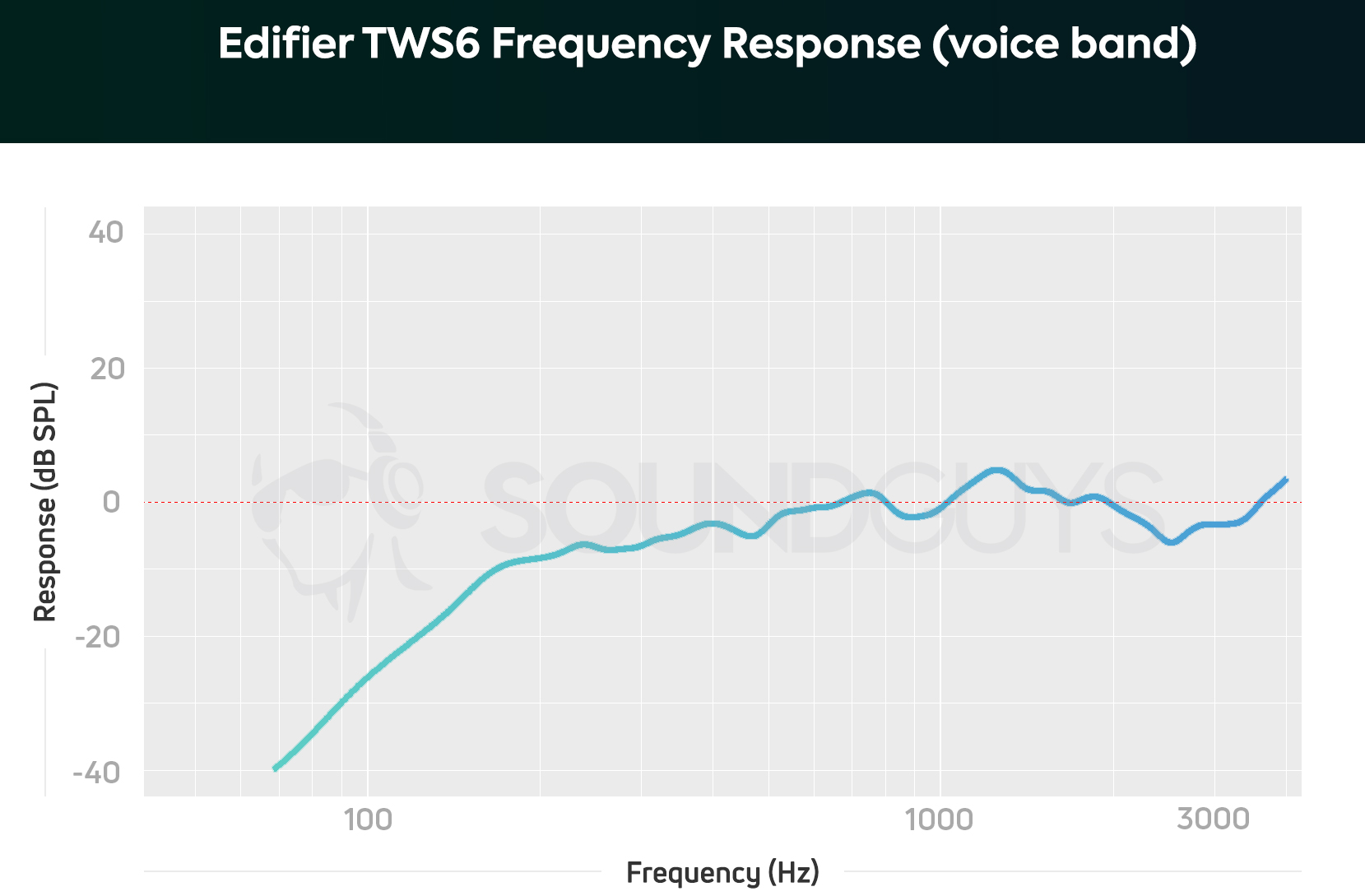
Microphone quality is great, thanks to the CVC noise canceling that minimizes background noise during calls. The microphone isn’t shy about de-emphasizing low-frequencies, so male voices may sound “odd” when speaking though the headset. However, speech intelligibility was never a problem, and this is the most important feature of an embedded mic.
Edifier TWS6 microphone demo:
How does the microphone sound to you?
The microphone’s noise canceling technology works well to reduce predictable background noise, but is no match for aggressive winds or honking cars. Anyone who spends hours each week on the phone, will ultimately benefit from the convenience and performance of the Edifier TWS6 microphone system.
Should you buy the Edifier TWS6?
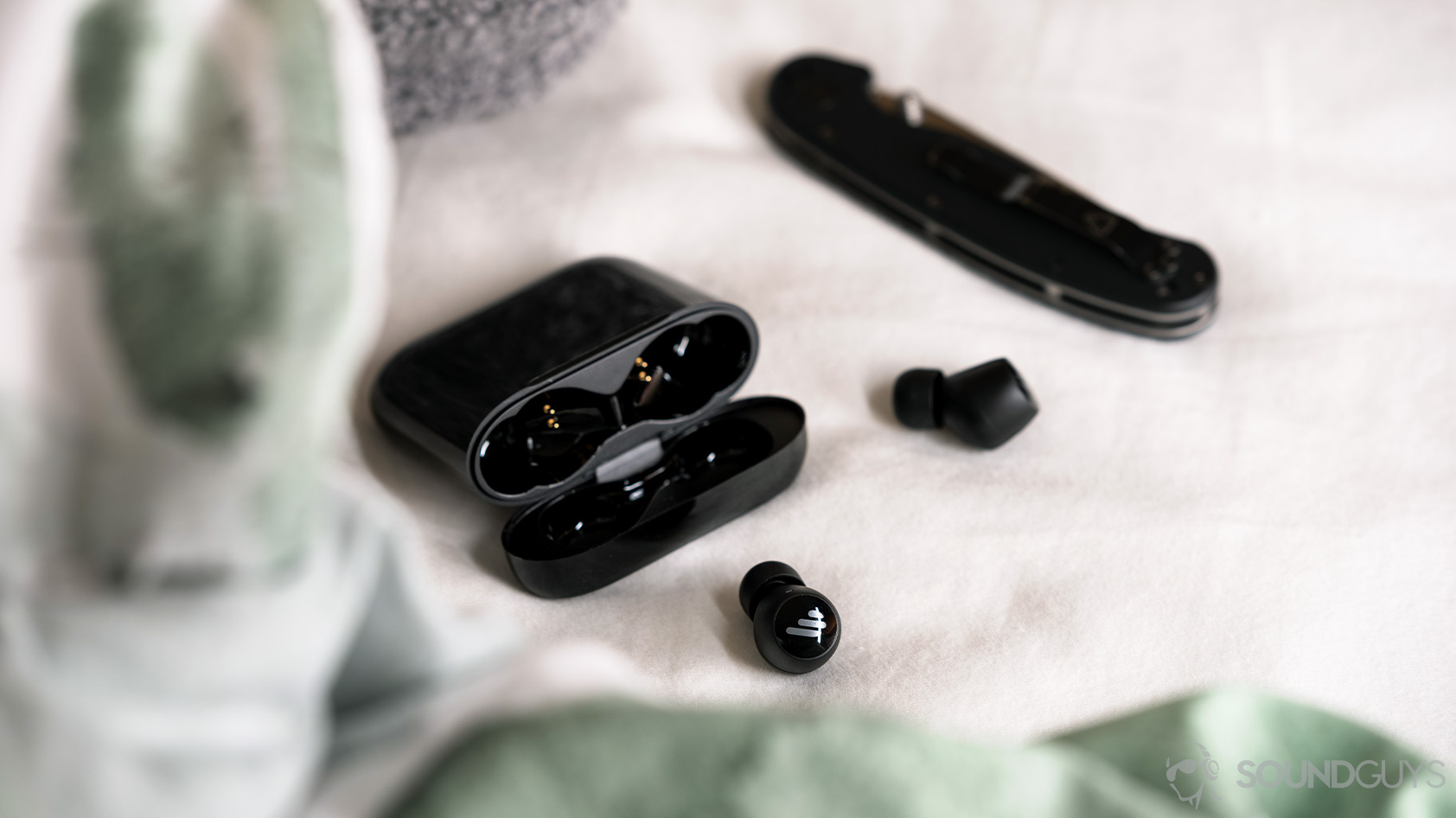
You won’t be disappointed with the Edifier TWS6, but you also won’t be getting the best bang for your buck by putting it to this headset. Sound quality is quite good and the microphone sounds great, considering how far it is from your mouth, but if my budget was capped at $120, I’d rather spend it on the Samsung Galaxy Buds or Anker Soundcore Liberty Air 2. Both headsets are cheaper, have similar battery life performance, and boast better microphone performance than the Edifier TWS6. Unless you’re a dedicated Edifier fan, there are better options out there for your needs.
You might like: Best true wireless earbuds under $50
How does the Edifier TWS6 compare to other true wireless headsets?
The headphones compare favorably when it comes to sound and microphone quality, but are feature-deprived. Listeners who would rather feel they’re on the cutting edge of technology with their totally wireless buds may want to read up on these alternatives.
Edifier TWS6 vs. Anker Soundcore Liberty Air 2
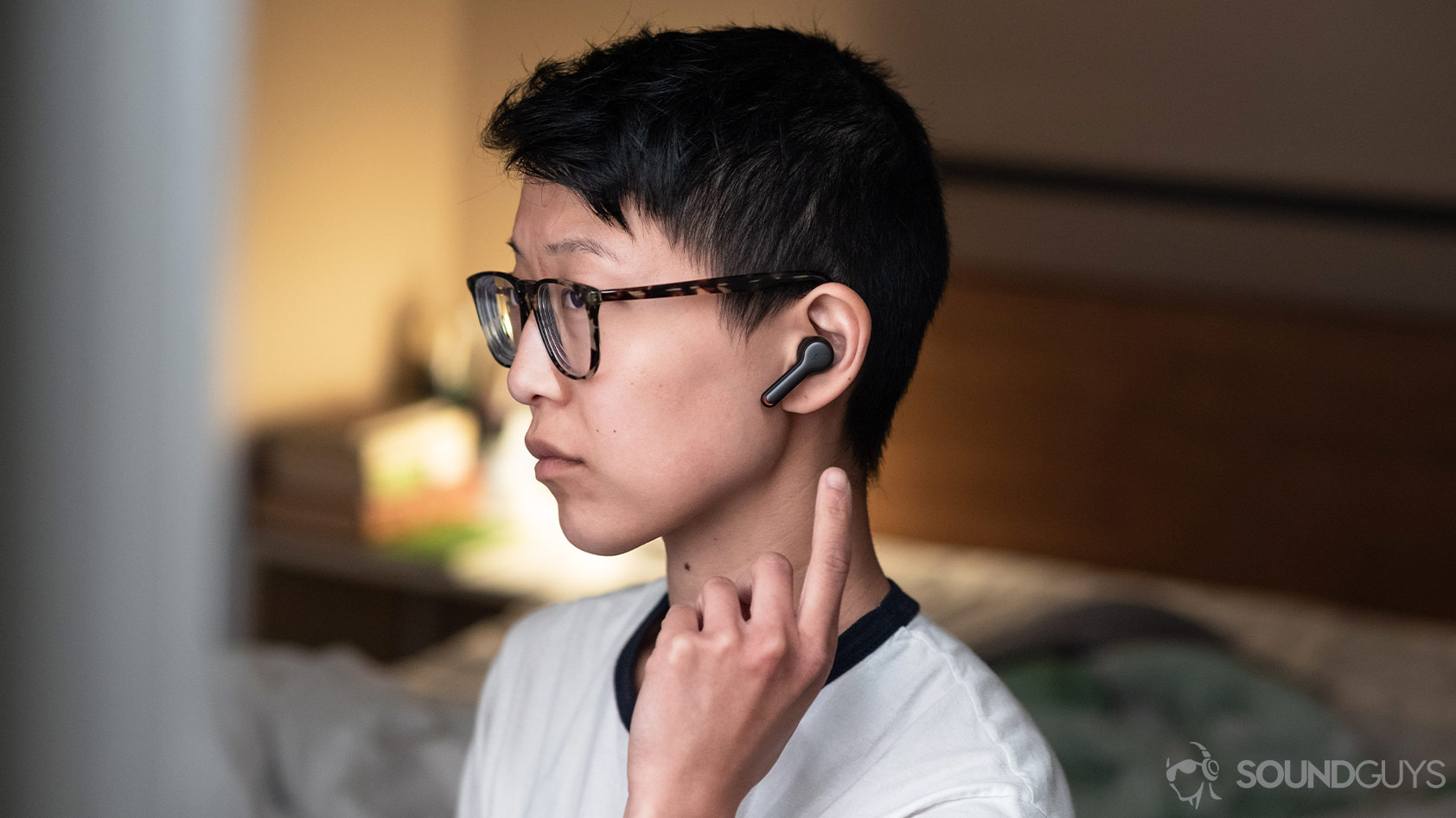
Both earphones are IPX5-rated, support aptX and AAC for high-quality Bluetooth streaming, and have solid microphone systems. People who want to sound as clear as possible while on the phone, perhaps you find yourself in a silly number of conference calls, should get the Anker Soundcore Liberty Air 2; the four-mic array is vastly better than what Edifier’s headset packs. Anker Soundcore’s earphones are also a bit cheaper than the Edifier TWS6, so you can spend the extra cash on a wireless charging pad.
The Liberty Air 2 are more feature rich, but the Edifier TWS6 earbuds sound better.
The Anker Soundcore app may not be a beautiful thing, but it is useful: you can remap the touch controls, enable onboard volume adjustments, and toggle playback auto-pause when an earbud is removed. Skipping and going back a track is enabled by default. Anker Soundcore doesn’t include wing tips with this headset, but isolation and fit security are very similar to the Edifier earbuds.
There is one clear reason you should get the Edifier TWS6 over the Liberty Air 2: sound quality. The balanced armature drivers do a much better job of reproducing clear audio quality even with the emphasized low-frequencies.
Edifier TWS6 vs. Samsung Galaxy Buds
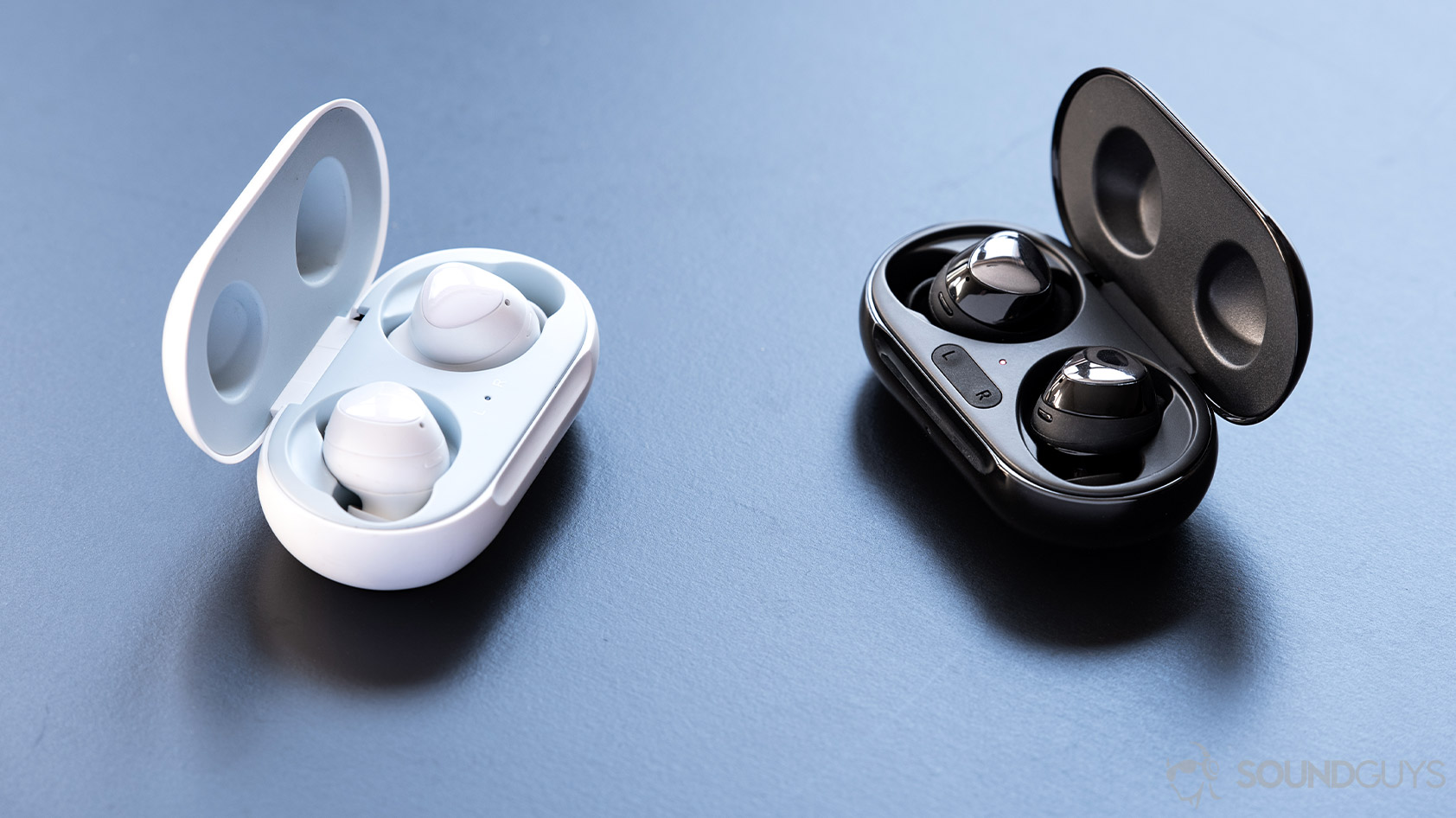
The first-generation Samsung Galaxy Buds retail for around $100 since the Buds Plus hit the market, and they’re an absolute steal. Battery life is great, despite being an older headset; you get 6.53 hours of playtime from Samsung’s earbuds which is just a tad less than what the TWS6 supply on a single charge. The Galaxy Buds also support wireless charging via Qi pad or atop a compatible Samsung Galaxy smartphone. You do, however, get much more on-the-go playtime from the Edifier TWS6 because the Galaxy Buds case only provides one extra charge cycle.
Samsung is attentive to its original Galaxy Buds, and even included direct Spotify access to a software update. This feature was originally thought to be exclusive to the Samsung Galaxy Buds Plus. Microphone quality, sound quality, functionality, and portability are all fantastic, but if you want bragging rights regarding Bluetooth codecs, get the TWS6 because Samsung’s buds don’t support aptX, just AAC and its proprietary scalable codec.
Edifier TWS6 vs. Edifier TWS1
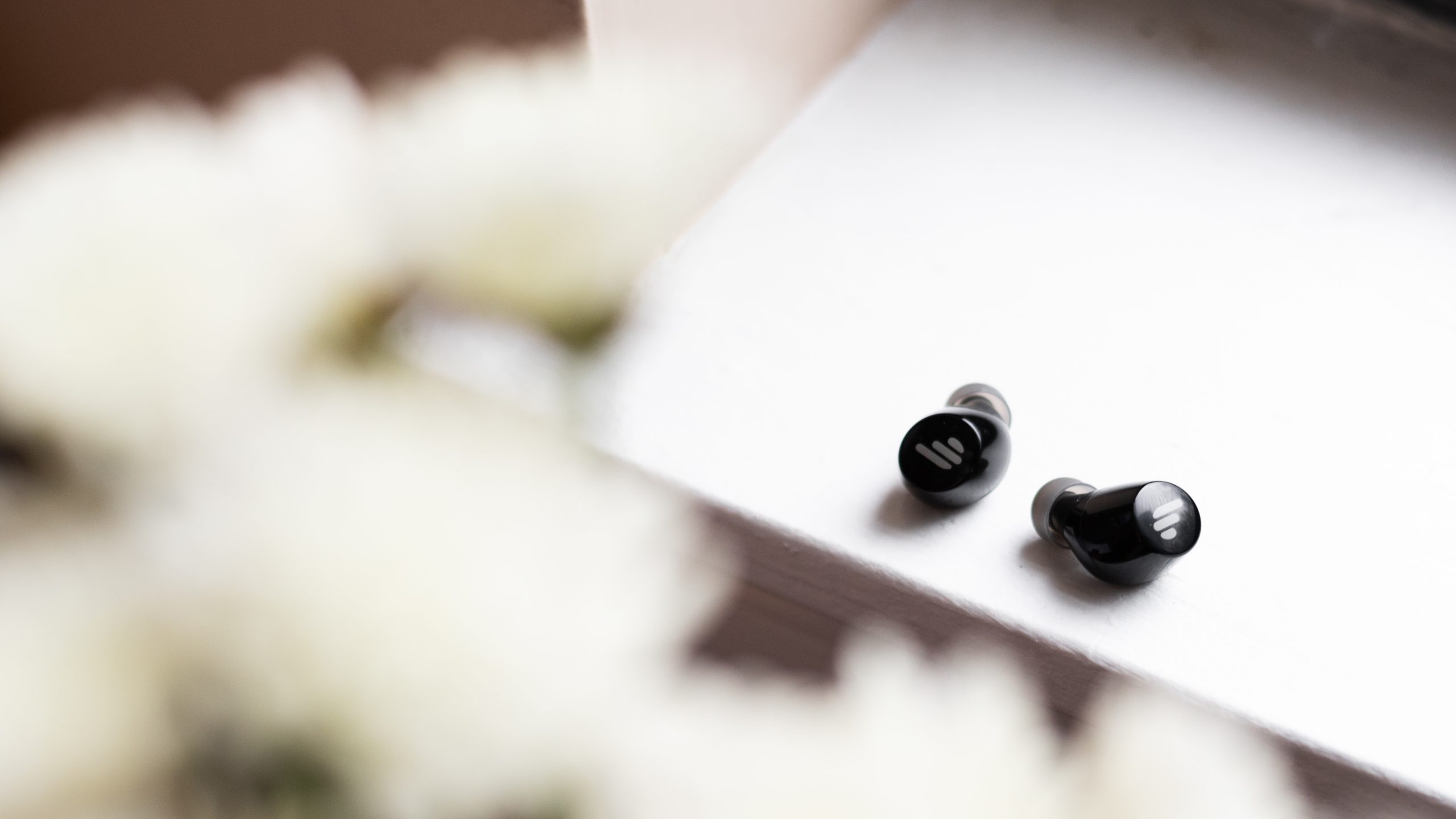
The Edifier TWS1 earphones are a bargain, and feature Qualcomm True Wireless StereoPlus, something that isn’t found on the more premium TWS6 version. This enables stable connectivity, but again: I didn’t run into any connection issues during the Edifier TWS6 review period. Both Edifier earbuds afford just over seven hours of listening and neither support fast charging. You get more playtime from the TWS6 charging case than the TWS1 charging case, though; and the newer model uses the USB-C input, rather than the outdated microUSB input.
The Edifier TWS1 supports Qualcomm True Wireless StereoPlus, which the more premium TWS6 doesn't include.
Isolation is much better with the premium version, again, thanks to the better ear tip selection and slightly different earbud design. The frequency response is similar, but sub-bass frequencies are slightly more amplified with the TWS6 than the TWS1; generally, clarity is more impressive with the former. If you’re on a tight budget, the TWS1 headset is a great choice, but the Edifier TWS6 has more updated tech and a greater sound clarity and mic quality.